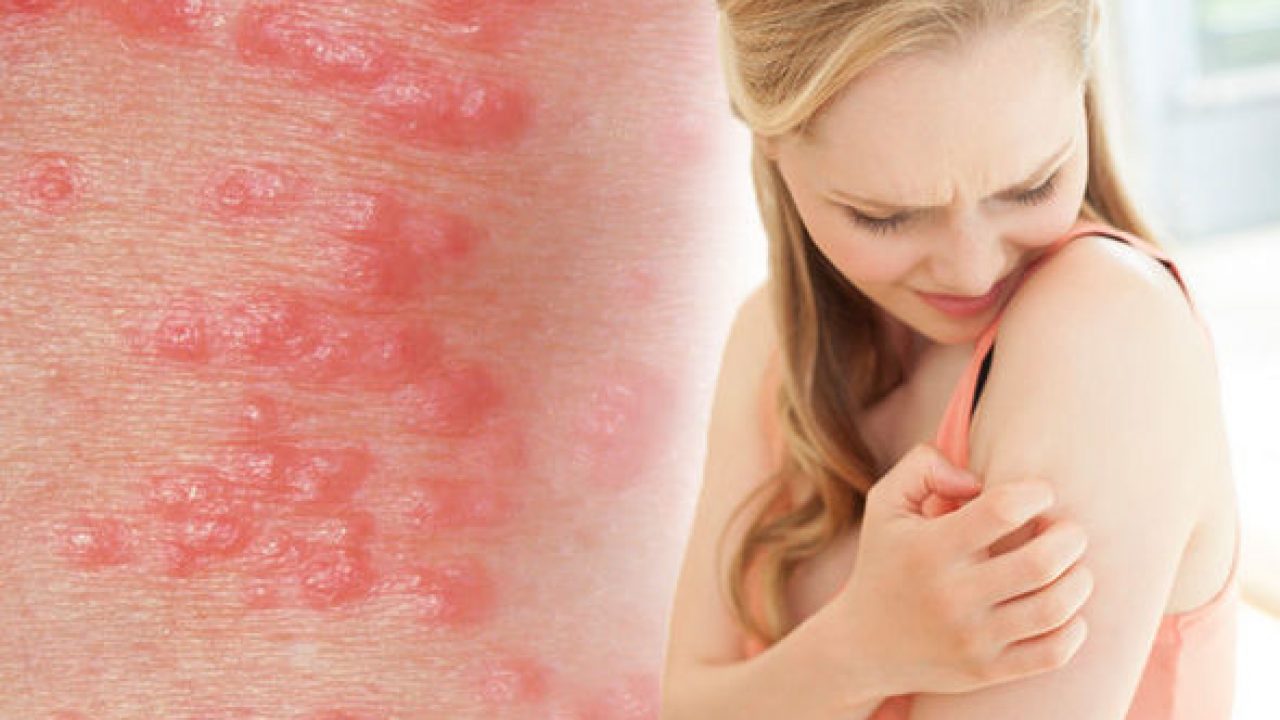
What you need to know about Atopic Dermatitis (Eczema)
Table of Contents
ToggleOverview
Atopic dermatitis (eczema) could be a condition that produces your skin red and fretful. it is common in kids however will occur at any age. atopic eczema is long lasting (chronic) and tends to flare sporadically. it’s going to be in the course of bronchial asthma or pollinosis.
No cure has been found for atopic eczema. However, treatments and self-care measures will relieve itchiness and stop new outbreaks. For instance, it helps to avoid harsh soaps, wash your skin frequently, and apply medicated creams or ointments.
Symptoms
Atopic dermatitis (eczema) signs and symptoms vary wide from person to person and include:
- Dry skin
- Itching, which can be severe, particularly in the night
- Red to brownish-gray patches, particularly on the hands, feet, ankles, wrists, neck, higher chest, eyelids, within the bend of the elbows and knees, and in infants, the face and scalp
- Small, raised bumps, which can leak fluid and crust over once scraped
- Thickened, cracked, scaly skin
- Raw, sensitive, swollen skin from scratching
Atopic dermatitis most frequently begins before age five and will persist into adolescence and adulthood. for a few folks, it flares sporadically then clears up for a time, even for many years.
Want to see a doctor
See a doctor if you or your child:
- Is therefore uncomfortable that the condition has effects on sleep and daily activities
- Has a skin infection — explore for red streaks, pus, yellow scabs
- Continues to expertise symptoms despite making an attempt home remedies
Seek immediate medical attention for your kid if the rash appearance infected and he or she includes a fever.
Causes of Atopic Dermatitis
Healthy skin helps retain wet and protects you from microorganism, irritants and allergens. skin disease is said to a factor variation that affects the skin’s ability to supply this protection. this enables your skin to be littered with environmental factors, irritants and allergens.
In some kids, food allergies could play a job in inflicting skin disease.
Risk factors
The primary risk issue for atopic skin disease is has a private or case history of eczema, allergies, hay fever or bronchial asthma.
Complications
Complications of atopic eczema (eczema) could include:
- Asthma and pollinosis. skin disease generally precedes these conditions. quite 1/2 young kids with atopic eczema develop bronchial asthma and pollinosis by age thirteen.
- Chronic itchy, scaly skin. A skin condition referred to as neuro eczema (lichen simplex chronicus) starts with a patch of fretful skin. You scratch the world, that makes it even itchier. Eventually, you will scratch merely out of habit. This condition will cause the affected skin to become stained, thick and coriaceous.
- Skin infections. recurrent scratching that breaks the skin will cause open sores and cracks. These increase the chance of infection from microorganism and viruses, together with the herpes simplex virus.
- Irritant hand dermatitis. This particularly affects folks whose work needs that their hands area unit usually wet and exposed to harsh soaps, detergents and disinfectants.
- Allergic contact dermatitis. This condition is common in folks with atopic eczema.
- Sleep problems. The itch-scratch cycle will cause poor sleep quality.
Prevention
The following tips could facilitate stop bouts of eczema (flares) and minimize the drying effects of bathing:
- Moisturize your skin at least twice a day. Creams, ointments and lotions lock in wet. select a product or product that employment well for you. exploitation petrolatum on your baby’s skin could facilitate stop development of atopic eczema.
- Try to identify and avoid triggers that worsen the condition. Try to establish and avoid triggers that worsen the condition. Things that may worsen the skin reaction embody sweat, stress, obesity, soaps, detergents, mud and spore. scale back your exposure to your triggers.
- Infants and kids could expertise flares from intake sure foods, together with eggs, milk, soy and wheat. speak together with your child’s doctor concerning distinguishing potential food allergies.
- Take shorter baths or showers. Limit your baths and showers to ten to fifteen minutes. And use heat, instead of hot, water.
- Take a bleach bath. The american Academy of medical specialty recommends considering a bleach bathtub to assist stop flares. A diluted-bleach bathtub decreases microorganism on the skin and connected infections. Add 1/2 cup (118 milliliters) of unit bleach, not targeted bleach, to a 40-gallon (151-liter) bathing tub stuffed with heat water. Measures area unit for a U.S.-standard-sized tub stuffed to the overflow voidance holes.
- Soak from the neck down or simply the affected areas of skin for concerning ten minutes. don’t submerge the top. Take a bleach bathtub no quite double per week.
- Use only gentle soaps. select gentle soaps. toiletries soaps and medication soaps will take away a lot of natural oils and dry your skin.
- Dry yourself carefully. when bathing gently pat your skin dry with a soft towel and apply moisturizer whereas your skin remains damp.
Diagnosis
No science laboratory takes a look at is required to spot atopic eczema (eczema). Your doctor can doubtless create an identification by examining your skin and reviewing your case history. He or she may additionally use patch testing or different tests to rule out different skin diseases or establish conditions that accompany your skin disease.
If you think an explicit food caused your child’s rash, tell the doctor and raise concerning distinguishing potential food allergies.
Treatment
Atopic dermatitis may be persistent. you will ought to strive numerous treatments over months or years to regulate it. And notwithstanding treatment is prosperous, signs and symptoms could come (flare).
It’s important to acknowledge the condition early so you’ll begin treatment. If regular moisturizing and different self-care steps do not facilitate, your doctor could recommend one or a lot of the subsequent treatments:
Medications
- Creams that management itchiness and facilitate repair the skin. Your doctor could bring down a sex hormone cream or ointment. Apply it as directed, when you wash. Overuse of this drug could cause facet effects, together with cutting skin.
Other creams containing medicine referred to as calcineurin inhibitors — like tacrolimus (Protopic) and pimecrolimus (Elidel) — have an effect on your system. they’re utilized by folks older than age two to assist management the skin reaction. Apply it as directed, when you wash. Avoid sturdy daylight once exploitation these products.
- These drugs have a black box warning about a potential risk of cancer. however, the American Academy of hypersensitivity reaction, bronchial asthma & medical specialty has terminated that the risk-to-benefit ratios of topical pimecrolimus and tacrolimus area unit the same as those of most different typical treatments of persistent skin disease which the information do not support the utilization of the recorder warning.
- Drugs to fight infection. Your doctor could bring down AN antibiotic cream if your skin includes a microorganism infection, AN open sore or cracks. He or she could suggest taking oral Antibiotics for a brief time to treat an infection.
- Oral drugs that control inflammation. For more-severe cases, your doctor could bring down oral corticosteroids — like Orasone. These medicine area units effective however cannot be used future due to potential serious facet effects.
- Newer option for severe eczema. The Food and Drug Administration (FDA) has recently approved a replacement, injectable life (monoclonal antibody) referred to as dupilumab (Dupixent). it’s accustomed treat folks with severe illness UN agency don’t respond well to different treatment choices. this can be a more moderen medication, therefore it does not have an extended journal in terms of however well it helps folks. Studies have shown it to be safe if used as directed. it’s terribly high-priced.
Lifestyle and home remedies
To help cut back on skin sensation and soothe inflamed skin, attempt these self-care measures:
- Moisturize your skin a minimum of twice on a daily basis. You have a product or combination of products that works for you. You may attempt tub oils, creams, ointments, or sprays. For a toddler, the twice-a-day program may well be an ointment before bedtime and a cream before college. Ointments are greasier and sting less once applied.
- Apply an anti-itch cream to the affected area. A nonprescription corticoid cream, containing a minimum of 1% corticoid, will quickly relieve the itch. Apply it not quite twice on a daily basis to the affected area, once moisturizing. The moisturizer first helps the medicated cream penetrate the skin better. Once your reaction has improved, you’ll use this kind of cream less often to stop flare-ups.
- Take an oral hypersensitivity reaction or anti-itch medication. Choices embrace nonprescription hypersensitivity reaction medicines (antihistamines) like cetirizine (Zyrtec) or fexofenadine (Allegra). Also, antihistamines (Benadryl, others) is also useful if skin sensation is severe. However, it causes sleepiness, so it’s higher for hour.
- Don’t scratch. Instead of scratching when you itch, attempt to press on the skin. If you cannot keep from scratching it. for kids, it would be convenient to trim their nails and have them wear gloves in the dark.
- Apply bandages. Covering the affected area with bandages helps defend the skin and stop scratching.
- Take a hot tub. Sprinkle the bathtub water with sodium bicarbonate, raw oatmeal, or oatmeal mixture — a finely ground oatmeal that’s created for the tub (Aveeno, others). Soak for ten to fifteen minutes, then pat dry. Apply moisturizer while the skin remains damp.
- Choose gentle soaps without dyes or perfumes. Use soap that is super fatted and has no alkalescent. Make sure to launder the soap fully.
- Use a humidifier. Hot, dry indoor air will sear sensitive skin and worsen skin sensation and flaking. a conveyable home humidifier or one connected to your chamber adds moisture to the air within your home.
- Wear cool, smooth-textured consumer goods. Cut back on irritation by avoiding consumer goods that are rough, tight, or unsmooth. Also, wear applicable consumer goods in weather conditions or throughout exercise to stop excessive sweating.
- treat stress and anxiety. Stress and different emotional disorders will worsen atopic eczema. Acknowledging those and attempting to enhance your emotional health will facilitate it.
How to Complete Your Peace Dollar Coin Collection


0 thoughts on “What you need to know about Atopic Dermatitis (Eczema)”